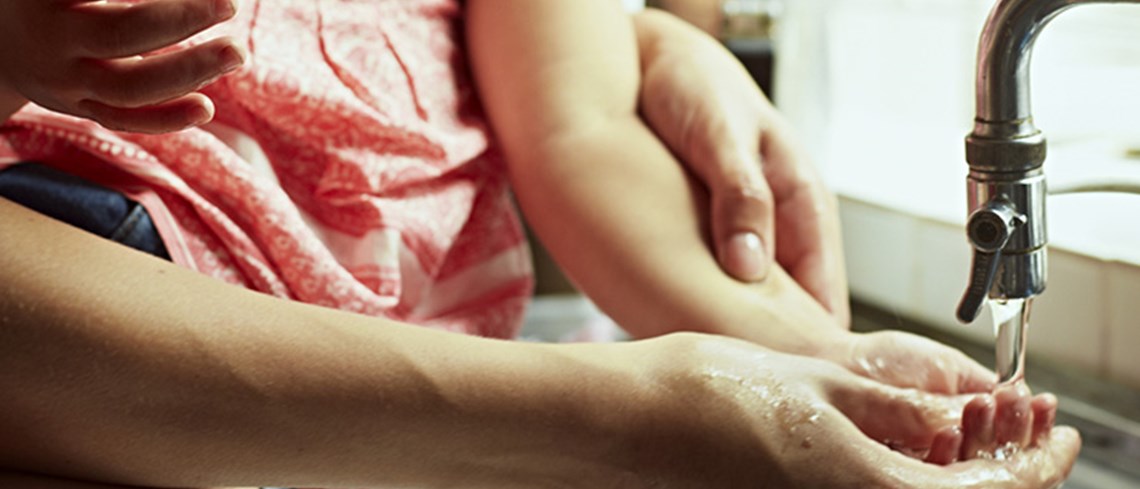Hand washing steps: do's and don'ts
Frequent handwashing is the single most effective hand hygiene step to prevent the spread of germs and bacteria - the kind that can lead to common respiratory diseases such as coronavirus (Covid-19), meningitis, cold & flu.
According to the Centers for Disease Control and Prevention (CDC), practicing effective hand hygiene, such as proper handwashing steps, is crucial to avoiding infectious diseases.
Unfortunately, many people are still unaware of the essential handwashing etiquette, such as how long they should wash their hands or how they should wash their hands properly to eliminate germs and bacteria.
This article explains the do’s and don’ts of handwashing, the most common excuses people often make for not washing their hands, and why they are wrong.
Handwashing: Do’s and Don’t
Here are some simple do’s and don’ts of handwashing steps to keep yourself healthy:
Do’s:
- Wet your hands thoroughly with clean and running water (preferably warm).
- Apply antibacterial soap or antibacterial liquid handwash and create a lather by rubbing for at least 20 seconds.
- Cover all the surfaces of your hands, including the front and back, the wrists, between fingers, and under fingernails.
- Rinse your hands well.
- Dry hands thoroughly with an air dryer or clean paper towel/tissue.
Don’t:
- Use hot water to wash your hands. It causes your skin to become cracked, rough, or sore, making it more susceptible to germs and bacteria.
- Wet your hands with water when lathering.
- Touch the sink/basin surfaces after washing your hands.
- Skip handwashing if you don’t have soap or water. Instead, apply antibacterial hand sanitizer or wipes that eliminates 99.9% of germs.
Handwashing excuses
Here are the six most common excuses people make for not washing their hands.
I haven’t been anywhere
Even if you have been home all day, you’ll still have picked up millions of germs and bacteria on your hands without knowing it.
These microorganisms can survive on hard surfaces for a couple of days. So telephone keypads, handsets, door handles, TV remotes – any surface people touch regularly- can be a hotspot for bacterial transfer.
So wash your hands regularly, and clean and disinfect the common home hygiene hotspots for ultimate germ protection.
They don’t look dirty
Even if your hands do not look dirty, there are millions of microscopic pathogens on them that you can’t see.
In our daily routine, we’re constantly picking up germs, particularly after going to the toilet or preparing food. So knowing when and how to wash your hands properly is important.
I am too busy
Ignoring the importance of personal hygiene and especially hand washing to save yourself a few extra minutes could cause you to miss several work days.
Norovirus, for example, causes, on average, four missed days of work. It’s one of the most common causes of sickness and diarrhea and spreads mainly through contact with an infected person, like shaking their hand. So nobody’s ever too busy to wash hands, even if you are, try using antibacterial wipes.
I’m not near soap and water
It is very likely that most of the time, you’d be far away from soap or water resources. However, it is always ideal to carry a hand sanitizer or multiuse wipes to instantly eliminate 99.9% of germs – useful if you’re about to grab a bite to eat or have been on public transport.
Germs are good for the immune system
Although certain infections will help stimulate our immune system, preventing us from becoming ill by the same infection again, this is not always the case (e.g., food poisoning).
General exposure to germs will also not protect us against specific infections. However, very few are seriously harmful from the billions of microorganisms we encounter daily.
But remember, contaminated hands are a prime reason for the spread of various diseases. So give your immune system a helping hand and give your hands a wash when necessary.
I forgot
With so much going on, it’s easy to forget about washing your hands. So try to make it a routine so you get into the habit. For example, leave yourself a note, draw on your hand, set a reminder on your phone, or write out this list until it sticks:
Wash hands before:
- Eating or preparing food
- Dressing a wound or giving medicine
- Picking up a baby or infant
- Changing nappy
Wash hands after:
- Handling food
- Changing a nappy or going to the toilet
- Contact with body fluids (blood, saliva, vomit, etc.)
- Handling animals and pets
- Emptying the bin
- Being in the garden
FAQs
What is the most important part of hand washing?
Time is the most important part of handwashing. The longer you let the antibacterial soap or antibacterial liquid hand wash work, the more effective it will be.
Which handwashing method kills the most germs?
Washing your hands with soap and water is the most effective method for killing germs and removing dirt, grease, and chemicals from your hands.
Can you use body wash as a hand soap?
The answer is yes if you are low on hand soap and wondering if body wash can be used instead. Body wash and shower gels have the closest formulations to hand soap — meaning they have the ingredients necessary to clean your hands and remove germs, often without drying your skin.
